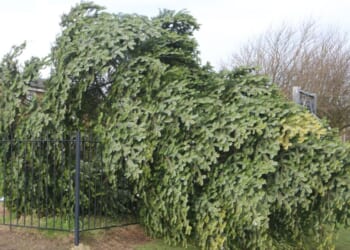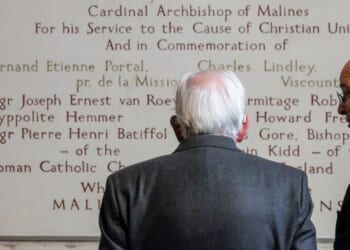Jonathan Van Patten is professor emeritus at the University of South Dakota School of Law. Read more about him in the dedication of volume 66 of the South Dakota Law Review (2021). He has kindly taken up the question I raised regarding prosecutorial immunity for Jack Smith in “The return of Krazee-Eyez Killa.” Would Smith be immune from civil or criminal claims that he violated the law by unlawfully obtaining the phone records of the eight Republican senators identified in the linked post? Professor Van Patten writes:
* * * * *
I am a long-time Power Line reader, from the Rathergate days, and I have a pretty good answer to your question: “[I]s Smith deprived of the immunity he would otherwise enjoy?
By way of a quick introduction, I am a retired Professor from the University of South Dakota School of Law, where I taught for 38 years, including many years teaching Constitutional Law. I have been interested in the problem of prosecutorial misconduct and have published an article entitled “Suing the Prosecutor,” 55 S.D. L. Rev. 255 (2010).
We know from the Nifong/Duke Lacrosse case that prosecutors, unlike judges, do not have absolute immunity. They have only a qualified immunity, which is described in the article in cases running from Imbler v. Pachtman, 424 U.S. 429 (1976) through oral argument in McGhee v. Pottawattamie County, Iowa, 547 F.3d 922, (8th Cir. 2008), judgment vacated on rehearing, May 15, 2008, cert. granted sub nom. Pottawattamie County, Iowa v. McGhee, 129 S.Ct. 2002 (2009), cert. dismissed, 130 S.Ct. 1047 (2010).
Qualified immunity for prosecutors, like for law enforcement, means that immunity is lost if the wrongdoing is intentional or reckless and outside of the prosecutorial function. Probably the key case is Buckley v. Fitzsimmons, 509 U.S. 259 (1993) in which the Court drew the line at probable cause: “A prosecutor neither is, nor should consider himself to be, an advocate before he has probable cause to have anyone arrested.” 509 U.S. at 274.
While that purported bright-line rule has caused some discomfort to certain members of the Court (see “Suing the Prosecutor,” pp. 250-52), it has held, as far as I know. See, e.g., Marrero v. City of Hialeah, 625 F.2d 499, 502 (5th Cir. 1980), cert. denied, 450 U.S. 913 (1981) (qualified immunity lost when performing functions other than the quasi-judicial functions of “initiating prosecutions and presenting the State’s case); Gobel v. Maricopa County, 867 F.2d 1201,1205 (9th Cir. 1989) (defendants were not entitled to absolute immunity when the act of making false public statements about arrestees is not intimately associated with the judicial phase of the criminal process”).
So, in addition to your surmise that there may not be prosecutorial immunity if the appointment of the prosecutor is so flawed as to make an immunity defense a non-starter, there remains, I believe, immunity for acts during the investigatory phase only if there is probable cause. The Nifong civil complaint provides a roadmap as to the various civil causes of action, including deprivation of constitutional rights. See Evans v. City of Durham, U.S. District Court for the Middle District of North Carolina, No. I :07CV739 (M.D.N.C. April 2, 2008).
I would also like to note that this is a much better civil case than a criminal one, as far as accountability is concerned. A criminal case would probably have to be brought in the District of Columbia, which is where the alleged crime took place, and which for practical purposes is a non-starter for criminal prosecutions against Democrats. Venue in a civil case is broader and would include where the injury occurred. (I am sure that Senator Hawley would prefer a Missouri venue over DC). Also, the scope of discovery in a civil case is much broader and provides an opportunity for much deserved embarrassment for the defendant.
While more can be said on this question (as discussed in the Article), I trust this is enough for a response. Does the absence of probable cause deprive prosecutor Smith of qualified immunity for his actions in investigating the activities of “the Senatorial Eight?” Yes!

















